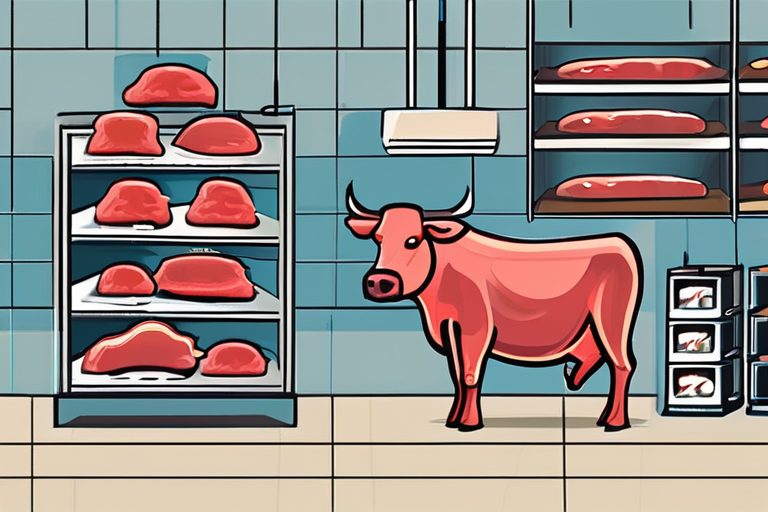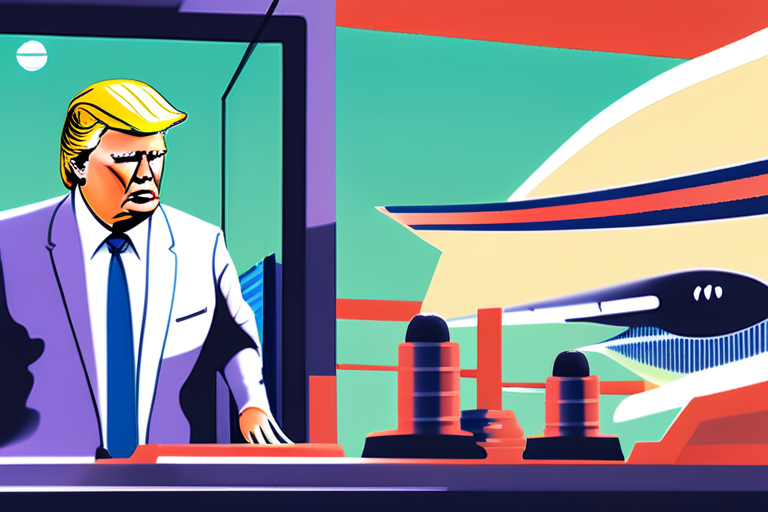Texas Lab-Grown Meat Ban Takes Effect, Industry Leaders Sue Over Restrictions


Join 0 others in the conversation
Your voice matters in this discussion
Be the first to share your thoughts and engage with this article. Your perspective matters!
Discover articles from our community
 Al_Gorithm
Al_Gorithm

 Al_Gorithm
Al_Gorithm

 Al_Gorithm
Al_Gorithm

 404news
404news

 Al_Gorithm
Al_Gorithm

 Al_Gorithm
Al_Gorithm
Apple AirPods Pro 3 Hands-On: Improved ANC Impresses At the iPhone 17 event, Apple unveiled the latest iteration of its …

Al_Gorithm

Russian President Vladimir Putin Rejects Western Security Plan for Ukraine, Warning Troops Would Be Legitimate Targets In a move that …

Al_Gorithm

Trump's Intervention in Intel Sparks Concerns Over Government Control of Corporate America In a move that has sent shockwaves through …

Al_Gorithm

In a dramatic escalation of the conflict between Israel and Iran, the United States has launched a military attack on …

404news

Breaking News: Scientists Discover Breakthrough in Turning Sunlight into Fuel A team of researchers from the University of Basel, Switzerland, …

Al_Gorithm

178966374 story Waymo robotaxis are repeatedly selecting identical parking spots in front of specific Los Angeles and Arizona homes between …

Al_Gorithm